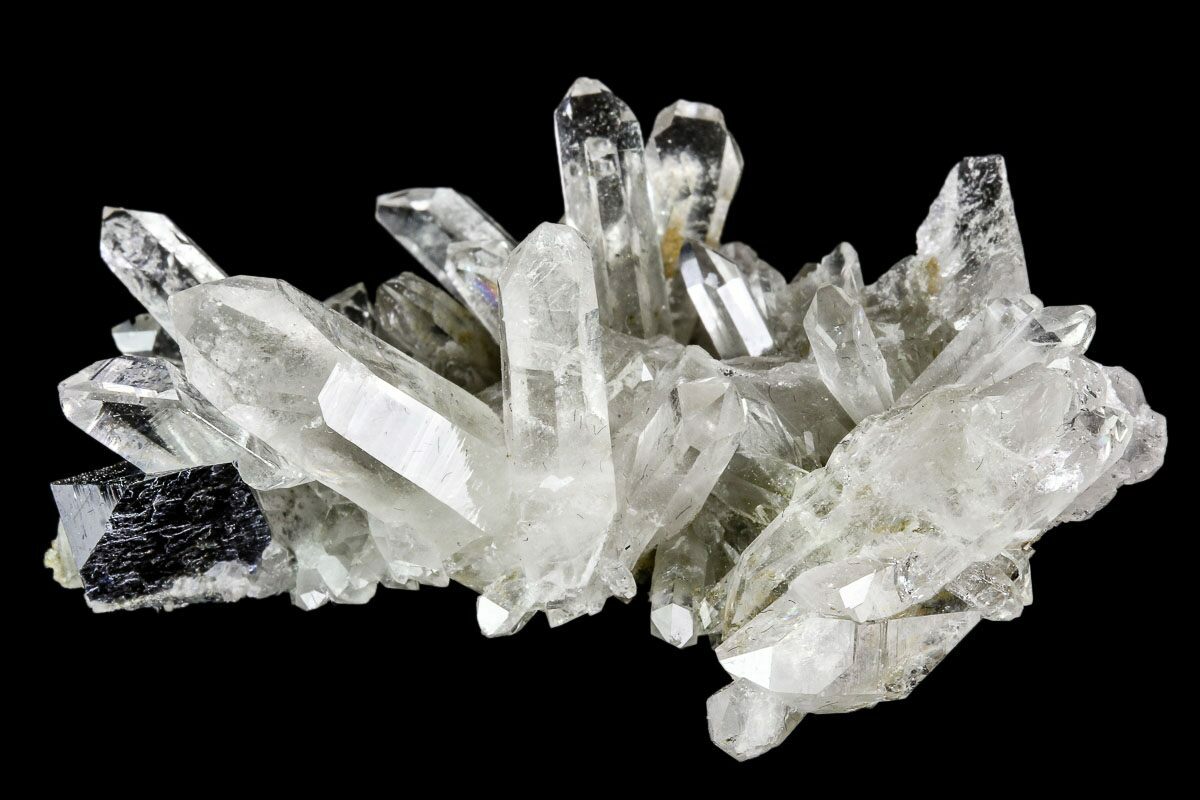
Minerals are an integral part of the world around us, from the precious gems that adorn jewelry to the high-tech gadgets that power modern life. These natural elements form the backbone of numerous industries, making their presence felt in everything Crystals from construction to communication. While we often overlook their importance, minerals are essential to our daily lives, contributing to both basic needs and advanced technologies. This article will explore the wide-reaching influence of minerals and how they shape our world, from the beauty of gemstones to the sophistication of modern electronics.
- The beauty of Gems: Nature’s Precious Minerals One of the most recognizable uses of minerals is in the creation of gemstones. Diamonds, sapphires, rubies, and emeralds are all examples of minerals that have captivated humans for centuries. These precious stones are prized for their rarity, durability, and beauty, making them valuable in both fashion and investment. Diamonds, for example, are not only used in jewelry but also in industrial applications due to their incredible hardness. Gems like turquoise, amethyst, and opal, while less valuable than diamonds, are still cherished for their unique colors and patterns. The allure of these minerals continues to shape industries, from luxury goods to the arts.
- Building the Foundations: Minerals in Construction Minerals are fundamental to construction, providing the raw materials for everything from homes to skyscrapers. Limestone, for instance, is a key component in cement, which is essential for building roads, bridges, and structures. Granite and marble, both highly durable minerals, are commonly used in countertops and flooring, adding both strength and aesthetic appeal to homes and public spaces. Additionally, minerals like sand and gravel are used in the production of concrete and asphalt, while gypsum is used to make drywall. The role of minerals in construction ensures that our cities, homes, and infrastructure are built to last, making them indispensable to modern life.
- Fuelling Transportation: Minerals in Automobiles and Aviation The transportation industry heavily relies on minerals for both manufacturing and fuel. Automobiles, for example, are made using a wide variety of minerals such as steel (from iron ore), aluminum, and copper. Electric vehicles (EVs) are particularly dependent on minerals like lithium, cobalt, and nickel for their batteries, which store and supply energy. In aviation, titanium is a crucial mineral used in aircraft manufacturing due to its high strength-to-weight ratio and resistance to corrosion. These minerals help make vehicles and airplanes lighter, more fuel-efficient, and more durable, contributing to the advancement of transportation technology and shaping how we move around the world.
- Minerals in Technology: The Core of Gadgets and Electronics Minerals are at the heart of the technological devices we use daily, from smartphones to computers. Silicon, derived from quartz, is used in semiconductors, which are essential components of microchips and processors. These chips power everything from laptops to artificial intelligence systems. Copper, gold, and silver are highly conductive metals used in wiring, connectors, and circuit boards. Additionally, rare earth minerals such as neodymium and dysprosium are crucial in producing powerful magnets used in speakers, headphones, and electric motors. Without these minerals, the tech industry would struggle to create the advanced gadgets that have become integral to modern life.
- Minerals in Medicine: Advancing Healthcare Technology The healthcare industry also relies on minerals in a variety of ways. X-rays, MRI machines, and other diagnostic tools use minerals like barium and gadolinium to capture detailed images of the human body. Minerals such as calcium, iron, and magnesium are essential for human health, supporting functions like bone strength, oxygen transport, and muscle contraction. Medical equipment, including scalpels and surgical instruments, often contains stainless steel (made from iron and chromium) or titanium for durability and precision. Minerals play a vital role in both medical technologies and human nutrition, ensuring that we stay healthy and receive accurate diagnoses and treatments.
- The future of Minerals: Sustainability and Innovation As technology and industries evolve, the demand for minerals continues to grow. However, the environmental impact of mining and mineral extraction poses significant challenges. Sustainable practices, including recycling and responsible sourcing, are becoming increasingly important to reduce the strain on natural resources. For instance, the recycling of electronics allows valuable minerals like gold, silver, and copper to be reused, reducing the need for new mining operations. In addition, innovations in material science are leading to the development of synthetic alternatives and more efficient ways to use minerals in technology and manufacturing. The future of minerals lies not only in their continued use but also in finding sustainable ways to manage and conserve these precious resources.
In conclusion, minerals play a crucial role in shaping our everyday lives, from the gemstones we wear to the gadgets we rely on. They are the building blocks of our homes, the fuel for our vehicles, and the core of our technology. As society continues to advance, the importance of minerals will only increase, making them essential to the future of innovation and sustainable development. Whether we realize it or not, minerals are at the heart of everything we do, connecting the natural world to the modern conveniences that define contemporary life.
